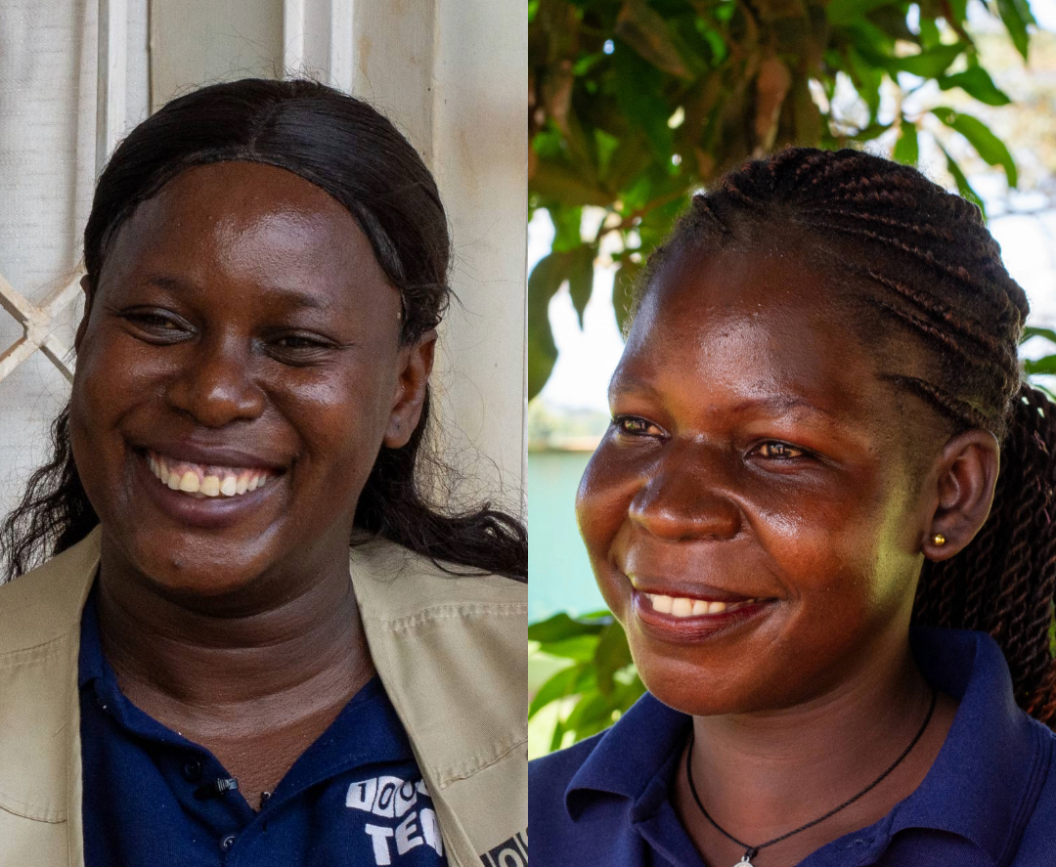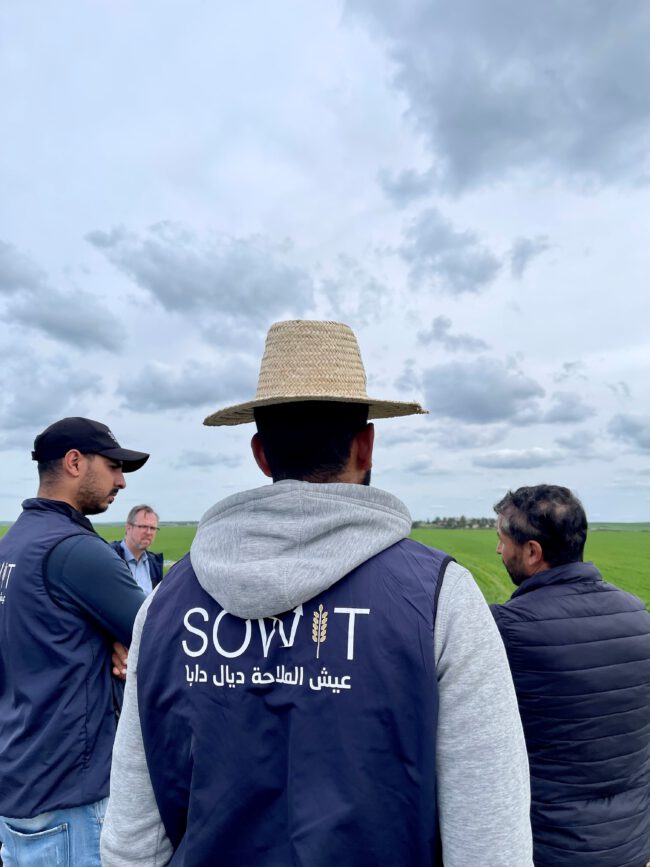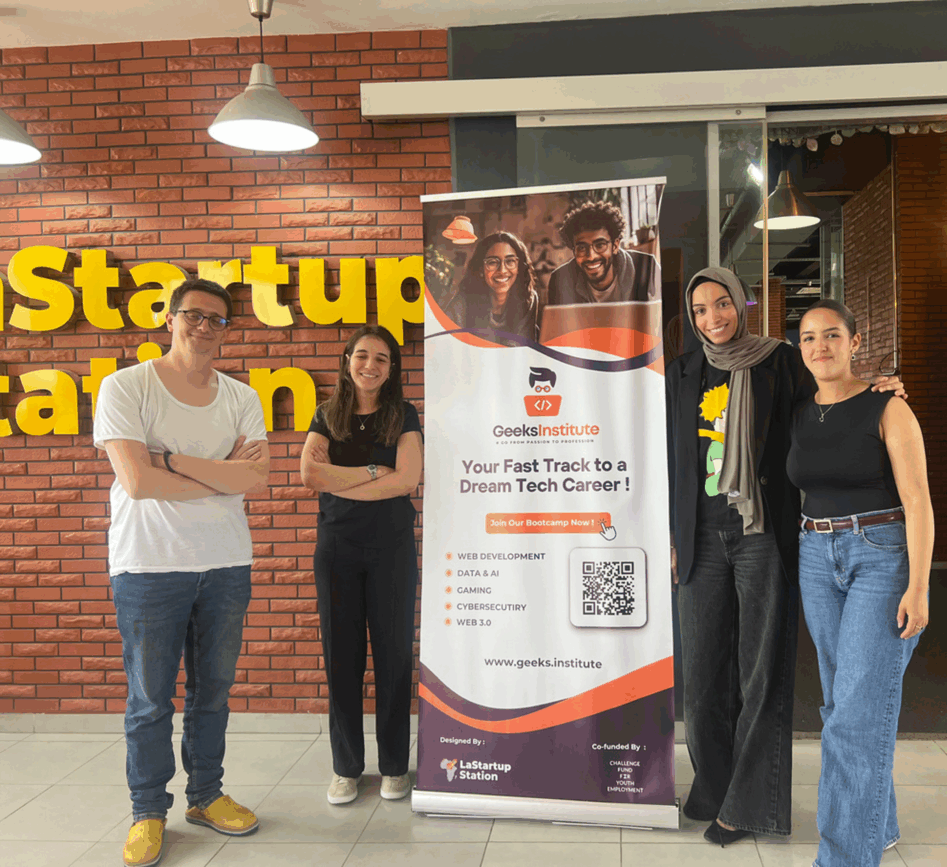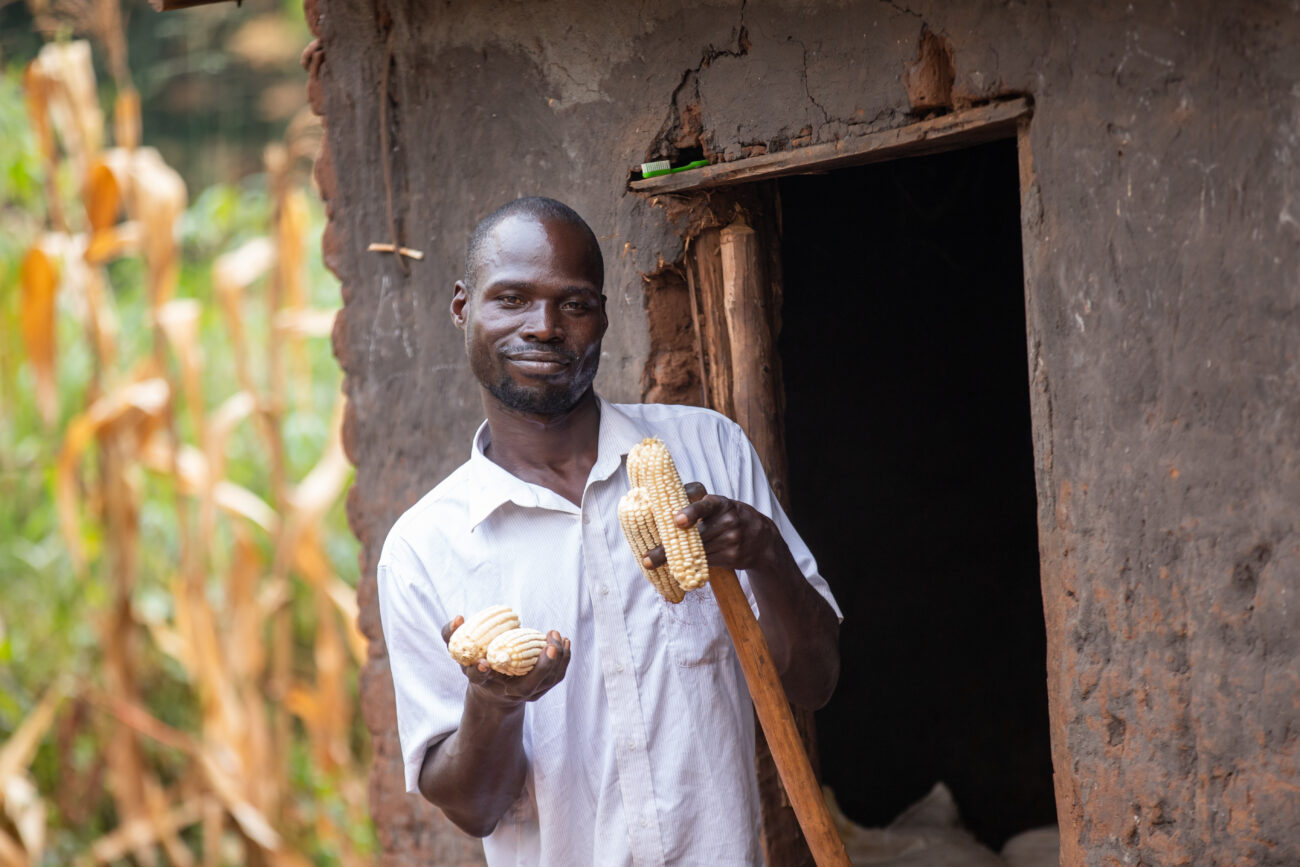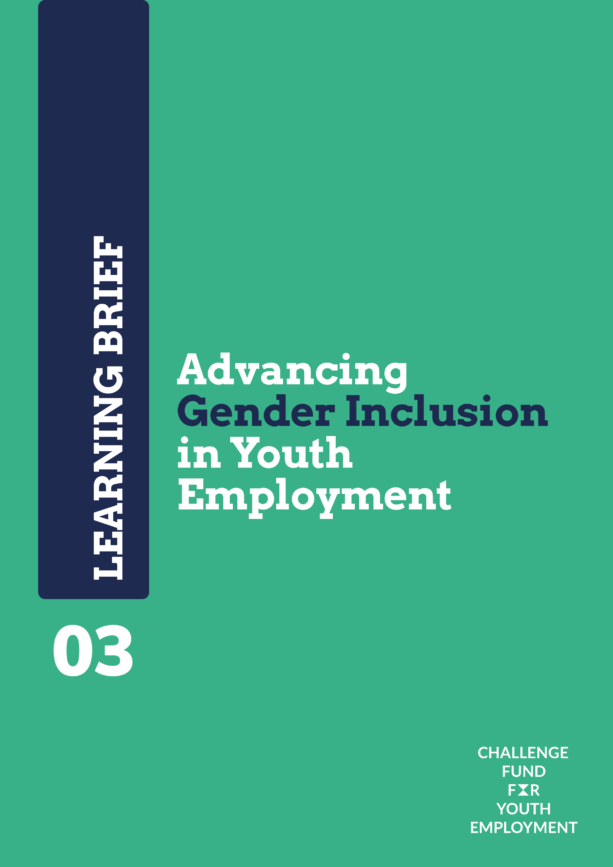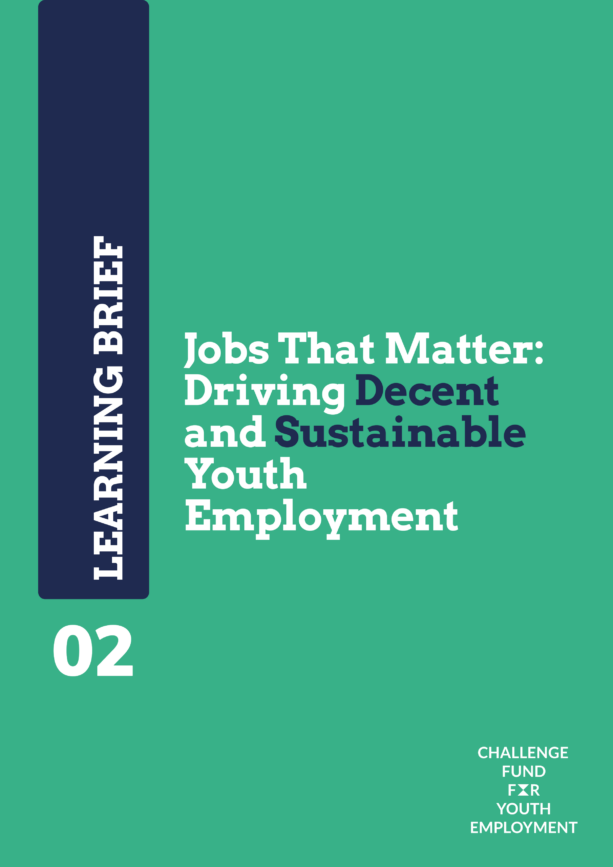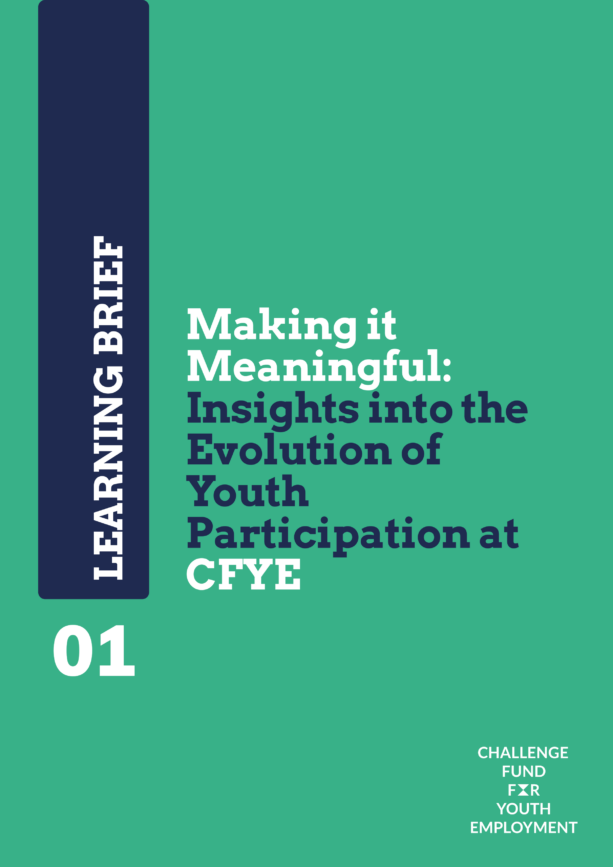Quicklinks: Our Impact – Green Jobs – Digital Jobs – News
Creating, matching and improving 230.000 jobs for young women and men
in Subsaharan Africa and the Middle East.
The Challenge Fund for Youth Employment (CFYE) is a 7-year programme funded by the Netherlands Ministry of Foreign Affairs.
The Fund is managed by the Palladium Group, Randstad and VSO.
Our Impact
A Community Built in 100Weeks
 Sade Aalto-Setala
Sade Aalto-Setala
 March 4, 2026
March 4, 2026
In the rural town of Mitala Maria in Central Uganda, groups of young women gather each week for entrepreneurship training offered through a collaboration between Simbuka, 100Weeks programme, and CFYE. Through the years, these sessions have grown into safe and trusted spaces where women learn practical financial skills and openly share their personal joys and challenges.
Overseeing this work is Catherine Tabingwa, Senior Program Manager for 100Weeks Uganda. Their model is intentionally simple: Each woman in the programme receives €8 in mobile money once a week for a period of 100 weeks, alongside weekly training and peer-to-peer learning sessions.
Read More
More Impact Stories:
A Community Built in 100Weeks
 Sade Aalto-Setala
Sade Aalto-Setala
 March 4, 2026
March 4, 2026
In the rural town of Mitala Maria in Central Uganda, groups of young women gather each week for entrepreneurship training offered through a collaboration between Simbuka, 100Weeks programme, and CFYE. Through the years, these sessions have grown into safe and trusted spaces where women learn practical financial skills and openly share their personal joys and challenges.
Overseeing this work is Catherine Tabingwa, Senior Program Manager for 100Weeks Uganda. Their model is intentionally simple: Each woman in the programme receives €8 in mobile money once a week for a period of 100 weeks, alongside weekly training and peer-to-peer learning sessions.
Read More
Creating Space to Sign: Diana & Kalanzi’s Path to Inclusive Work in the Green Economy
 Faatimah Clarke
Faatimah Clarke
 February 2, 2026
February 2, 2026
“Disability is not Inability.”
In Uganda, where 12.5% of the population live with a disability (NUDIPU, 2019), these words are more than just rhetoric, they are a lived reality and constant battle for those that remain excluded from the labour force due to persistent stigma, limited accessibility, and deeply rooted misconceptions.
Read More
Two Years Later: James’s Mission for Cleaner Streets and Stronger Communities
 Sade Aalto-Setala
Sade Aalto-Setala
 November 24, 2025
November 24, 2025
“Waste is a treasure – if we know how to use it, we can make money through it.”
These words belong to James Njenga, also known as Rooney, the waste aggregator CFYE had the honour of featuring in our very first impact story. Back then, James spoke passionately about his dream: to help his community, create inclusive jobs for women, and protect the environment by turning waste into opportunity. Two years later, we return to Kasarani, a neighbourhood in Nairobi, to see how far that dream has come - and what James is striving for now.
Read More
A Community Built in 100Weeks
 Sade Aalto-Setala
Sade Aalto-Setala
 March 4, 2026
March 4, 2026
In the rural town of Mitala Maria in Central Uganda, groups of young women gather each week for entrepreneurship training offered through a collaboration between Simbuka, 100Weeks programme, and CFYE. Through the years, these sessions have grown into safe and trusted spaces where women learn practical financial skills and openly share their personal joys and challenges.
Overseeing this work is Catherine Tabingwa, Senior Program Manager for 100Weeks Uganda. Their model is intentionally simple: Each woman in the programme receives €8 in mobile money once a week for a period of 100 weeks, alongside weekly training and peer-to-peer learning sessions.
Read More
SOWIT: Cultivating the Future of Agri-Tech Employment in Morocco
 Ilaria Blasi
Ilaria Blasi
 November 13, 2025
November 13, 2025
Founded in Casablanca in 2018 by two young Moroccan entrepreneurs, SOWIT is an agri-tech company driving Africa’s agricultural transformation through precision technologies powered by remote sensing and artificial intelligence. In 2022, the company crossed paths with the Challenge Fund for Youth Employment (CFYE), marking the start of a partnership aimed at offering job opportunities to young women and men, across Morocco’s agricultural sector.
Read More
Learning Brief: Gender Inclusion
 Faatimah Clarke
Faatimah Clarke
 February 18, 2026
February 18, 2026
CFYE recognises young people as diverse individuals with unique strengths. Their engagement is essential, not optional, in shaping solutions to global challenges. For us, youth engagement is a core strategy in tackling unemployment.
Over the past seven years, we have developed and tested our own MYP approach, drawing insights from several organisations, including the Youth at Heart Meaningful Youth Participation Toolkit and VSO's Youth Engagement Framework Scorecard. This has given us a unique perspective on what
works, what doesn’t, and how to drive meaningful youth participation for development partners, companies, and other ecosystem actors.
Read More
More Learning material:
Learning Brief: Gender Inclusion
 Faatimah Clarke
Faatimah Clarke
 February 18, 2026
February 18, 2026
CFYE recognises young people as diverse individuals with unique strengths. Their engagement is essential, not optional, in shaping solutions to global challenges. For us, youth engagement is a core strategy in tackling unemployment.
Over the past seven years, we have developed and tested our own MYP approach, drawing insights from several organisations, including the Youth at Heart Meaningful Youth Participation Toolkit and VSO's Youth Engagement Framework Scorecard. This has given us a unique perspective on what
works, what doesn’t, and how to drive meaningful youth participation for development partners, companies, and other ecosystem actors.
Read More
Learning Brief: Social Impact
 Faatimah Clarke
Faatimah Clarke
 February 4, 2026
February 4, 2026
CFYE recognises young people as diverse individuals with unique strengths. Their engagement is essential, not optional, in shaping solutions to global challenges. For us, youth engagement is a core strategy in tackling unemployment.
Over the past seven years, we have developed and tested our own MYP approach, drawing insights from several organisations, including the Youth at Heart Meaningful Youth Participation Toolkit and VSO's Youth Engagement Framework Scorecard. This has given us a unique perspective on what
works, what doesn’t, and how to drive meaningful youth participation for development partners, companies, and other ecosystem actors.
Read More
Learning Brief: Meaningful Youth Participation
 Faatimah Clarke
Faatimah Clarke
 December 8, 2025
December 8, 2025
CFYE recognises young people as diverse individuals with unique strengths. Their engagement is essential, not optional, in shaping solutions to global challenges. For us, youth engagement is a core strategy in tackling unemployment.
Over the past seven years, we have developed and tested our own MYP approach, drawing insights from several organisations, including the Youth at Heart Meaningful Youth Participation Toolkit and VSO's Youth Engagement Framework Scorecard. This has given us a unique perspective on what
works, what doesn’t, and how to drive meaningful youth participation for development partners, companies, and other ecosystem actors.
Read More
Learning
Learning Brief: Gender Inclusion
 Faatimah Clarke
Faatimah Clarke
 February 18, 2026
February 18, 2026
CFYE recognises young people as diverse individuals with unique strengths. Their engagement is essential, not optional, in shaping solutions to global challenges. For us, youth engagement is a core strategy in tackling unemployment.
Over the past seven years, we have developed and tested our own MYP approach, drawing insights from several organisations, including the Youth at Heart Meaningful Youth Participation Toolkit and VSO's Youth Engagement Framework Scorecard. This has given us a unique perspective on what
works, what doesn’t, and how to drive meaningful youth participation for development partners, companies, and other ecosystem actors.
Read More
Countries
Stay informed
Privacy notice
By submitting any of the forms on this website, you are consenting to receive emails from Palladium, on behalf of the Challenge Fund for Youth Employment. You can revoke your consent to receive emails at any time by emailing us on info@fundforyouthemployment.nl.
Read more here: Privacy Notice

